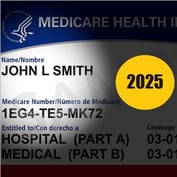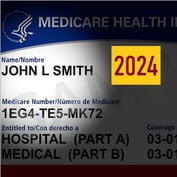Members of the Senate today voted 64-35 to approve bill that would postpone a big cut in Medicare physician pay until at least the end of the year.
The House has already approved the bill, H.R. 4302.
The bill puts off implementation of the Medicare “sustainable growth rate” (SGR) program.
Congress created the SGR program to try to hold down Medicare costs by tying increases in physician pay to growth in gross domestic product. Lawmakers have never followed through with limiting growth in physician pay to GDP growth. Retroactively adopting the SGR system would reduce Medicare physicians’ fees by about one-quarter.
Majority Leader Harry Reid, a Nevada Democrat, agreed to the one-year “patch” though he said he preferred a permanent solution to head off the payment cut that lawmakers have delayed every year since 2003.
“We need to take action on this to ensure that Medicare patients will be able to see their doctor,” Reid said today on the Senate floor. “This legislation is not perfect, it’s not ideal.”








 March 31, 2014 at 03:06 PM
March 31, 2014 at 03:06 PM










